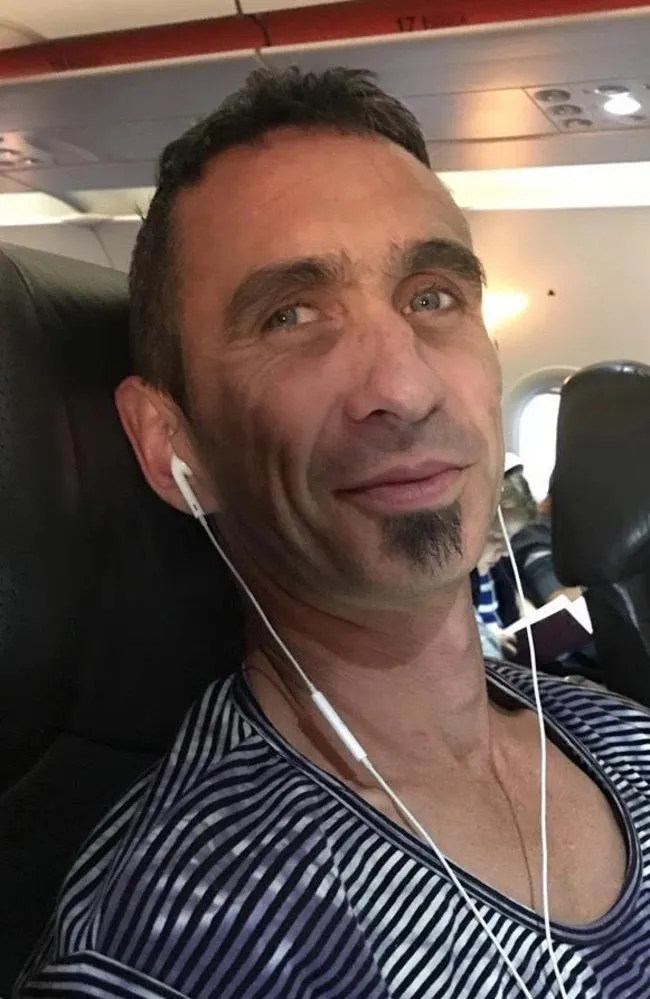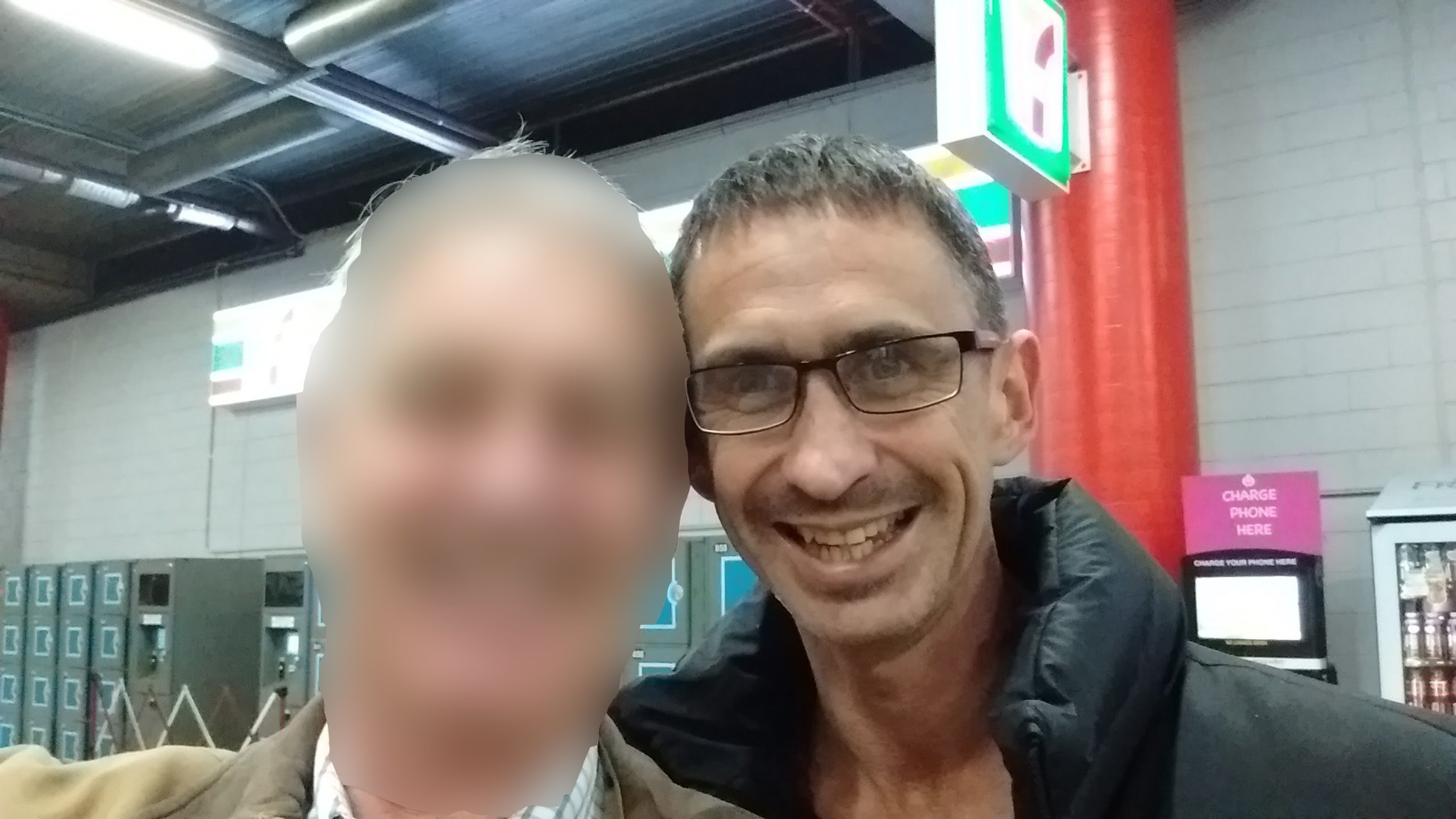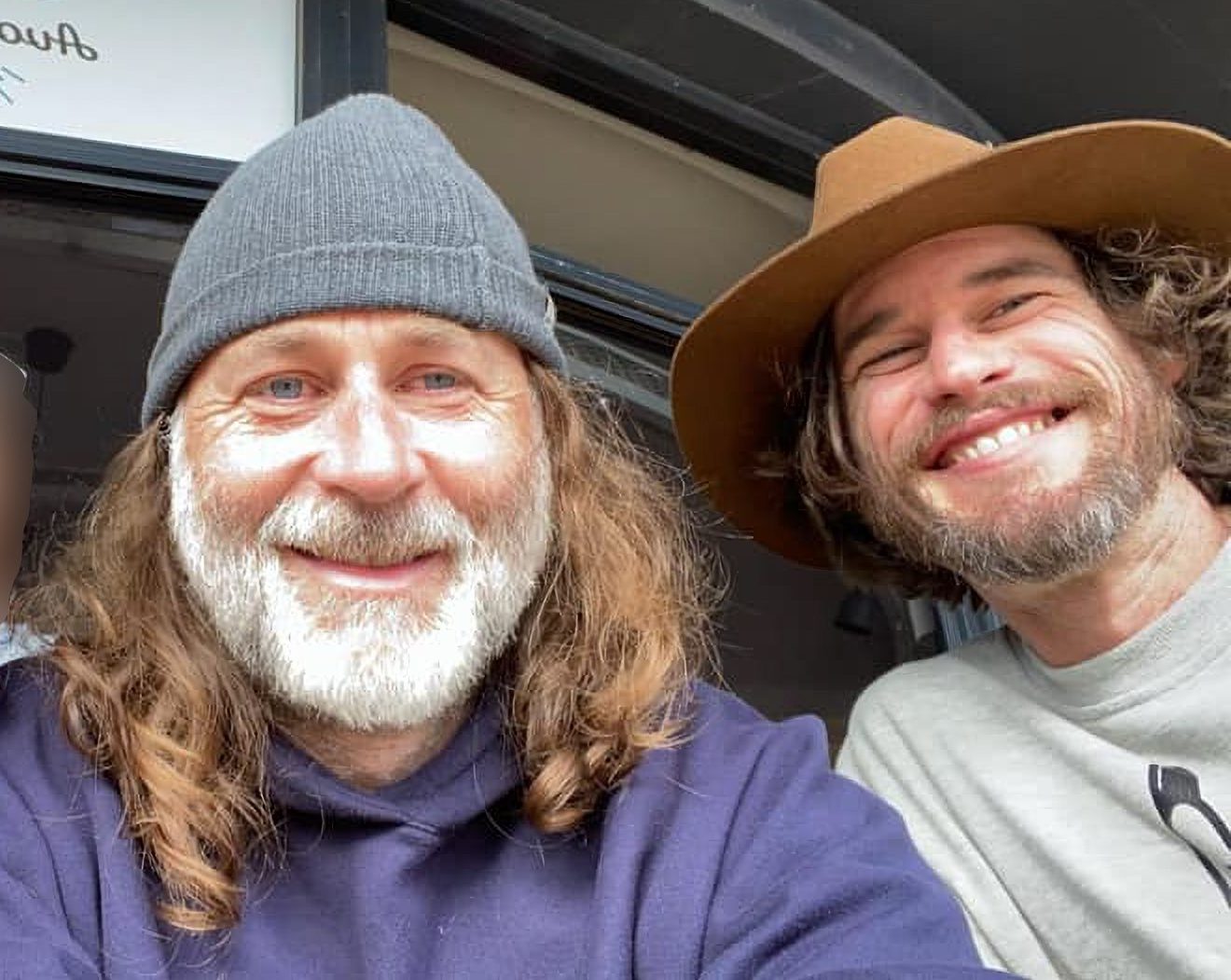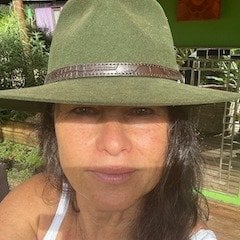
Yesterday afternoon the inquest into the kambo-related death of Jarrad Antonovich stopped abruptly mid-witness. Family and media were later informed that the current witness would finish her testimony next month, with the rest of the inquest not due to be completed until February 2024.
For Mr Antonovich’s family, sitting in the public gallery of Lismore Courthouse, the whole experience has been extremely gruelling.
Yesterday’s proceedings opened with Jarrad’s brother Christopher reading an emotional statement. He said his brother originally got into drugs because he was ‘trying to tap into the same wavelength’ as his musical heroes.
Christopher spoke about the serious car accident Jarrad had suffered in 1997, putting him in a coma for three weeks, and leaving him with an acquired brain injury as well as permanent physical injuries, but also detoxifying his system and setting him on a new spiritual path.
While touring South America as a sound technician with a band, Jarrad took part in an ayahuasca ceremony with a traditional shaman, which he described as ‘a very personal and profound confrontation with his fears, the super ego, the ego and the id.’
Afterwards, he became interested in healthy food and exercise, did tertiary education, made a piece for Radio National and wrote two books. The two brothers last spoke on the phone, three weeks before Jarrad died near Kyogle. They talked about plans for the future and new musical collaborations.

Christopher explained Jarrad had been very close to their grandmother Lily, who died last month, and was profoundly sad that he was already buried when they buried their grandmother.
Lots to live for
Christopher said his brother had much to live for, and that what the family wanted most from the inquest was that no one else would have to go through what they and his brother had. He said it had been ‘particularly galling’ to hear that the organiser of the ayahuasca/kambo retreat had described Jarrad’s death as a ‘beautiful occasion’.
Next on the stand was Fred Woller, who works full time as a manager at Arcoora, which rented its former Buddhist temple, now ‘retreat centre’ to Lore Solaris for the Dreaming Arts festival, at the price of $50 per person per day.
Dr Peggy Dwyer, counsel assisting the coroner, probed Mr Woller’s history with ayahuasca, and Lore Solaris, establishing that Arcoora had bent (if not broken) its own rules by renting the drug and alcohol-free property for an event revolving around mind-altering substances (whose illegality was a grey area at the time, according to Mr Woller), and without properly qualified first aid officers in attendance.

He said he had trusted Lore Solaris and his people to do the right thing, having established a good relationship over multiple events, and believing their intentions were in sympathy with Arcoora.
‘They were very responsible people,’ he said.
Mr Woller said there were first aid kits on site, and agreed with Dr Dwyer that it would be a good idea to formally require hirers to have first aid training and experience. He noted that they had implemented other safety improvements to protect festival-goers, and believed Lore Solaris’ party included trained first aiders.
Regarding ayahuasca (main active ingredient DMT, and a sacred medicine in Peru, where he’d experienced it before), Mr Woller said he could find no evidence at the time of anyone being charged with using the substance in Australia, and no significant safety issues. He also noted ayahuasca was ‘being used quite prevalently throughout the Northern Rivers and throughout Australia.’
He said he was entirely unaware at the time of the risk of perforation to the eosophagus, from excessive vomiting.
First aid issues
Coroner Teresa O’Sullivan asked him if he thought it would be a good idea to make sure potential first aiders were not themselves ‘under the influence’, citing the example of the CPR-trained dentist who testified the day before that he didn’t feel able to intervene, because he had taken ayahuasca himself.
Mr Woller responded by saying that he felt ‘quite lucid’ when he’d taken psychedelics in the past. He also talked about his personal experience with kambo, noting that two other people at that session had exhibited similar symptoms to Jarrad Antonovich as his condition deteriorated (extreme facial and neck swelling, pain, breathing difficulties) but had come through fine, so he thought Jarrad would as well.

He said that it was normal for kambo to be extremely painful, but that afterwards he personally had felt ‘really energised and clear’.
Two way radios
Fred Woller contradicted earlier testimony from a man who said he had been listening to the community’s two way radio the afternoon before Jarrad Antonovich’s death and heard Mr Woller’s voice saying he ‘was in CPR’ and discussing a ‘medical emergency’ with his partner.
Mr Woller said that didn’t happen, and the first discussion over the radio about Jarrad’s condition was when they were organising the ambulance, at 11.30pm that night.
There was then a long discussion about the problem of life threatening symptoms being indistinguishable from ‘normal’ kambo symptoms, at least in some cases, even with people who were well experienced with the substance.
As Counsel Dr Dwyer put it, ‘doesn’t it strike you that it is extremely important to have somebody with some proper medical training to be able to recognise symptoms that are going to be life threatening?’
Mr Woller responded, ‘I haven’t thought about it before, but that seems reasonable.’
He said that after what happened with Mr Antonovich, they would never allow kambo ceremonies on the Arcoora property again, and he could understood why it had been banned. ‘This has been the most stressful and upsetting experience of my life,’ he said.

At the same time, he argued that tearing of the eosophagus after kambo and ayahuasca was ‘an extremely unlikely risk’.
A discussion followed about whether police and ambulance officers had been told what Jarrad had consumed. Mr Woller said he wasn’t asked.
At the end of his testimony, Mr Woller was asked to share what he’d learned from the tragedy. He said he was deeply sorry that it had happened, but still believed ‘in the power of these medicines to help people.’
He said better regulation was needed, but that Western medicine was ‘failing a lot of people’ particularly where addiction was concerned. He said lack of purpose and lack of connection was reaching epidemic proportions.
‘I believe that the work Lore was doing was totally motivated by supporting and helping people’s wellbeing,’ said Mr Woller.
Kambo expert speaks
The final witness of the day, who joined the Lismore Court from Western Australia, was Laurel Hefferon, who is no longer a kambo practitioner, but has extensive experience with the substance as a participant, practitioner and teacher. She also trained Cameron Kite, who allegedly administered kambo to Jarrad Antonovich.

Ms Hefferon proceeded to disagree with much of the evidence provided by other witnesses through the course of the inquest, saying the symptoms presented by Jarrad after he had kambo were not typical and that expert medical assistance should have been sought much earlier.
She said some swelling of the lips and face was normal, but certainly not a grossly swollen neck, and that all symptoms should have passed within 30-60 minutes (not remained for many hours, as in Jarrad’s case).
She said all kambo practitioners who trained formally had to have first aid qualifications, and that it was unheard of to leave a participant unattended while they were still being affected by kambo.
Ms Hefferon, who has also been a registered nurse, said that someone with the symptoms Jarrad exhibited – even an hour later – should have been driven directly to emergency.
She said that in terms of dosage, it was the kambo practitioner’s responsibility to monitor doses of participants over a year, not just a day, and that it was highly unusual for a client to have more than seven ‘points’ in one session, with 3-5 being much more common. It is thought that Jarrad Antonovich may have had nine.

Another torn oesophagus
Ms Hefferon then dropped the bombshell that she herself had a client in 2021 who fell ill and was then diagnosed with a torn oesophagus. She took him to emergency and he made a full recovery, but this was one of the reasons she stopped all involvement with kambo, even before it was banned.
She said doctors at the time had made her aware of a similar case of a torn eosophagus in US medical literature, in addition to another NSW case already known to the state coroner, along with that of Mr Antonovich.
Ms Hefferon said in spite of the increasingly known risks, kambo was still being used all over the world, having only been banned in Australia, Argentina and Brazil.
As the clock ticked past 4pm, the wheels of justice ground to an abrupt halt, with everyone later being informed that Laurel Hefferon would not be able to complete her testimony until 15 June, with the rest of the inquest not re-starting until 14 February 2024.
The Echo will continue to cover as further information becomes available.
